Plot
In summer 1917, a Chinese laborer is accused of stealing from the company stores of the Spokane International Railway in the Idaho Panhandle. Robert Grainier and the other white laborers attempt to throw him over the bridge they are constructing, but he escapes. Grainier stops in Meadow Creek and buys a bottle of sarsaparilla for his wife, Gladys, and their four-month-old daughter, Kate. Hiking home to his cabin, Grainier thinks he sees the Chinese man and believes he has cursed him.
In 1920, Grainier leaves for northwestern Washington to help repair the Robinson Gorge Bridge. He also cuts and transports timber for the Simpson Company. He meets fellow worker Arn Peeples, a fearless but superstitious old man who dangerously excavates tunnels with dynamite. Arn is later killed by a falling dead branch. In 1962 or 1963, Grainier watches young ironworkers build a new highway. In the mid-1950s, he sees the World's Fattest Man. He recalls seeing Elvis Presley's private train in Troy, Montana, and flying in a biplane in 1927.
Grainier was born in 1886 in Utah or Canada. In 1893, he arrived on the Great Northern Railway as an orphan in Fry, Idaho, and was adopted by a family. He witnesses the mass deportation of Chinese families from the town. In 1899, the towns of Fry and Eatonville were merged to form Bonners Ferry. Grainier quit school in his early teens and began fishing. One day, he stumbles upon a dying man named William Coswell Haley. He brings him a drink of water from his boot and leaves him to die alone.
Grainier is hired out to the railroad and local families, and works around town through his twenties. At 31 years old, he marries Gladys Olding. In summer 1920, Grainier returns to Idaho from working on the Robinson Gorge to find a massive wildfire has consumed the valley. His cabin is lost and his wife and daughter are nowhere to be found. The following spring, he returns to their cabin and believes he feels Gladys' spirit. One night while sleeping by the river, he sees her white bonnet "sailing past" above him. He lives there through summer, taking in a red dog as company. He hikes to Meadow Creek and takes a train to Bonners Ferry, staying there through winter. In March, he returns to the Moyea Valley and rebuilds his cabin. The red dog returns in June, with four puppies. Grainier befriends a Kootenai Indian named Bob, who drunkenly gets run over by trains.
Four years into living in his cabin, Grainier realizes he cannot continue to move out every summer to Washington and every winter to Bonners Ferry. By April 1925, he stays and works in town. In one job, he loads sacks of cornmeal aboard the Pinkhams' wagon. After witnessing their grandson Hank collapse and die, Grainier buys their horses and wagon. Around this time, Grainier hears rumors about a wolf-girl.
Grainier is visited by a figure of his wife Gladys, who tells him she died after falling and breaking her back on rocks down by the river. Before drowning, she unknotted her bodice to allow Kate to crawl away and escape.
Thereafter, Grainier lives in his cabin, working one final summer in the Washington woods to pay for winter lodging for his horses. He travels on the Great Northern to Spokane, Washington, taking a ride on a plane. He meets his childhood friend Eddie Sauer, who returns with him to Meadow Creek.
Grainier continues to live in his cabin, despite having arthritis and rheumatism. When a pack of wolves comes upon his cabin one night, Grainier sees a wolf-girl and is convinced it is Kate. She growls and barks at him, but lets him splint her broken leg. She sleeps in his cabin but leaps out the window come morning. He never sees her again.
Robert Grainier dies in his sleep in November 1968. His body is discovered next spring by a pair of hikers. In a memory from 1935, Grainier attends a sideshow to see a "wolf-boy". The audience laugh at him but are shocked by his roar. The novella concludes, "And suddenly it all went black. And that time was gone forever."

Jonathan Earl Franzen is an American novelist and essayist. His 2001 novel The Corrections, a sprawling, satirical family drama, drew widespread critical acclaim, earned Franzen a National Book Award, was a Pulitzer Prize for Fiction finalist, earned a James Tait Black Memorial Prize, and was shortlisted for the International Dublin Literary Award. His novel Freedom (2010) garnered similar praise and led to an appearance on the cover of Time magazine alongside the headline "Great American Novelist". Franzen's latest novel Crossroads was published in 2021, and is the first in a projected trilogy.

Elizabeth Bishop was an American poet and short-story writer. She was Consultant in Poetry to the Library of Congress from 1949 to 1950, the Pulitzer Prize winner for Poetry in 1956, the National Book Award winner in 1970, and the recipient of the Neustadt International Prize for Literature in 1976. Dwight Garner argued in 2018 that she was perhaps "the most purely gifted poet of the 20th century".
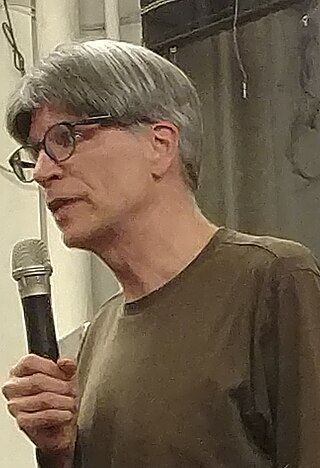
Richard Powers is an American novelist whose works explore the effects of modern science and technology. His novel The Echo Maker won the 2006 National Book Award for Fiction. He has also won many other awards over the course of his career, including a MacArthur Fellowship. As of 2023, Powers has published thirteen novels and has taught at the University of Illinois and Stanford University. He won the 2019 Pulitzer Prize for Fiction for The Overstory.

Edmund Wilson Jr. was an American writer, literary critic and journalist. He is widely regarded as one of the most important literary critics of the 20th century. Wilson began his career as a journalist, writing for publications such as Vanity Fair and The New Yorker. He helped to edit The New Republic, served as chief book critic for The New Yorker, and was a frequent contributor to The New York Review of Books. Wilson was the author of more than twenty books, including Axel's Castle, Patriotic Gore, and a work of fiction, Memoirs of Hecate County. He was a friend of many notable figures of the time, including F. Scott Fitzgerald, Ernest Hemingway, and John Dos Passos. His scheme for a Library of America series of national classic works came to fruition through the efforts of Jason Epstein after Wilson's death. He was a two-time winner of the National Book Award and received the Presidential Medal of Freedom in 1964.

Paul Muldoon is an Irish poet.

Farrar, Straus and Giroux (FSG) is an American book publishing company, founded in 1946 by Roger Williams Straus Jr. and John C. Farrar. FSG is known for publishing literary books, and its authors have won numerous awards, including Pulitzer Prizes, National Book Awards, and Nobel Prizes. As of 2016 the publisher is a division of Macmillan, whose parent company is the German publishing conglomerate Holtzbrinck Publishing Group.

Roger Williams Straus Jr. was co-founder and chairman of Farrar, Straus and Giroux, a New York book publishing company, and member of the Guggenheim family.

Alice McDermott is an American writer and university professor. For her 1998 novel Charming Billy she won an American Book Award and the U.S. National Book Award for Fiction. She was shortlisted for the PEN/Faulkner award for fiction.
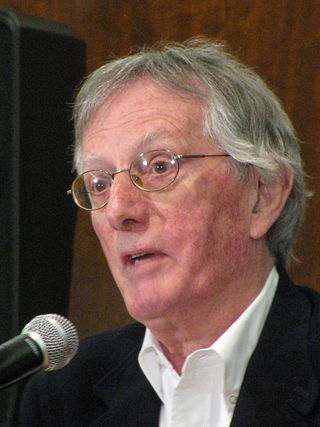
Charles Wright is an American poet. He shared the National Book Award in 1983 for Country Music: Selected Early Poems and won the Pulitzer Prize in 1998 for Black Zodiac. From 2014 to 2015, he served as the 20th Poet Laureate of the United States.

David Grossman is an Israeli author. His books have been translated into more than 30 languages.

Denis Hale Johnson was an American novelist, short-story writer, and poet. He is perhaps best known for his debut short story collection, Jesus' Son (1992). His most successful novel, Tree of Smoke (2007), won the National Book Award for Fiction. Johnson was twice shortlisted for the Pulitzer Prize for Fiction. Altogether, Johnson was the author of nine novels, one novella, two books of short stories, three collections of poetry, two collections of plays, and one book of reportage. His final work, a book of short stories titled The Largesse of the Sea Maiden, was published posthumously in 2018.

Charles Kenneth "C. K." Williams was an American poet, critic and translator. Williams won many poetry awards. Flesh and Blood won the National Book Critics Circle Award in 1987. Repair (1999) won the 2000 Pulitzer Prize for Poetry, was a National Book Award finalist and won the Los Angeles Times Book Prize. The Singing won the 2003 National Book Award and Williams received the Ruth Lilly Poetry Prize in 2005. The 2012 film The Color of Time relates aspects of Williams' life using his poetry.
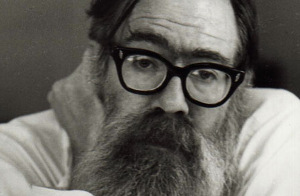
John Allyn McAlpin Berryman was an American poet and scholar. He was a major figure in American poetry in the second half of the 20th century and is considered a key figure in the "confessional" school of poetry. His best-known work is The Dream Songs.
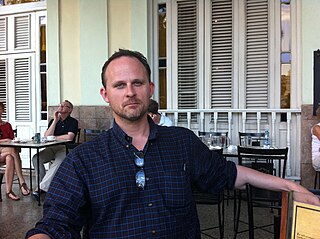
John Jeremiah Sullivan is an American writer, musician, teacher, and editor. He is a contributing writer for The New York Times Magazine, a contributing editor of Harper's Magazine, and the southern editor of The Paris Review. In 2014, he edited TheBest American Essays, a collection in which his work has been featured in previous years. He has also served on the faculty of Columbia University, Sewanee: The University of the South, and other institutions.

Suketu Mehta is the New York-based author of Maximum City: Bombay Lost and Found, which won the Kiriyama Prize and the Hutch Crossword Award, and was a finalist for the 2005 Pulitzer Prize, the Lettre Ulysses Prize, the BBC4 Samuel Johnson Prize, and the Guardian First Book Award. His autobiographical account of his experiences in Mumbai, Maximum City, was published in 2004. The book, based on two and a half years of research, explores the underbelly of the city.

Lydia Davis is an American short story writer, novelist, essayist, and translator from French and other languages, who often writes short short stories. Davis has produced several new translations of French literary classics, including Swann's Way by Marcel Proust and Madame Bovary by Gustave Flaubert.

Benjamin S. Lerner is an American poet, novelist, essayist, critic and teacher. The recipient of fellowships from the Fulbright, Guggenheim, and MacArthur Foundations, Lerner has been a finalist for the National Book Award for Poetry and the Pulitzer Prize for Fiction, among many other honors. Lerner teaches at Brooklyn College, where he was named a Distinguished Professor of English in 2016.
Donald Heiney was a sailor and academic as well as a prolific and inventive writer using the pseudonym of MacDonald Harris for fiction.

Carl Phillips is an American writer and poet. He is a Professor of English at Washington University in St. Louis. In 2023, he was awarded a Pulitzer Prize for Poetry for his Then the War: And Selected Poems, 2007-2020.
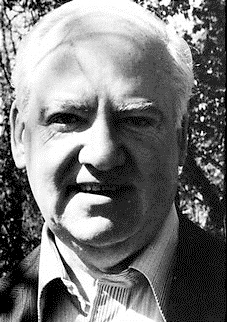
Robert Giroux was an American book editor and publisher. Starting his editing career with Harcourt, Brace & Co., he was hired away to work for Roger W. Straus, Jr. at Farrar & Straus in 1955, where he became a partner and, eventually, its chairman. The firm was henceforth known as Farrar, Straus and Giroux, where he was known by his nickname, "Bob".



















